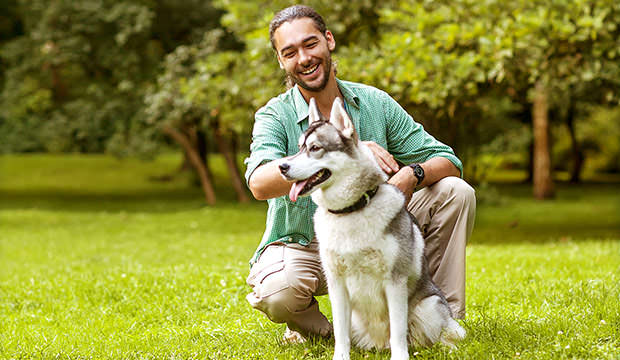
A dog is man’s best friend, but have you ever wondered why this is the case and what the origin of this special dog-human cooperation actually is?
This question was the subject of a study by behavioral scientists from the Messerli Research Institute at the Vetmeduni, Vienna and the Wolf Science Center, who managed to show that their ancestors, the wolves, are just as attentive to members of their species and to humans as dogs are.
Friederike Range and Zsófia Virányi from the Unit of Comparative Cognition at the Messerli Research Institute claim that “since wolves already are tolerant, attentive and cooperative, the relationship of wolves to their pack mates could have provided the basis for today’s human-dog relationship. An additional selection, at least for social attentiveness and tolerance, was not necessary during canine domestication.”
Social Partners
The researchers state that wolves are not less socially attentive, but dogs do cooperate more easily with humans “because they more readily accept people as social partners and more easily lose their fear of humans.”
Range and Virányi decided to examine the social attentiveness and tolerance of wolves and dogs within their packs and toward humans, and the test showed that wolves and dogs do have quite similar social skills.
The test was (among other things), based on how well wolves and dogs can find food that has been hidden by a conspecific or by a human. Both wolves and dogs used information provided by a human to find the hidden food.
Pack Behavior
Range and Virányi also conducted a research on the social behavior of dogs and wolves that grew up with members of their species AND with humans.
“To be able to compare the behavior of dogs and wolves and to investigate the effects of domestication, it is important that the animals live in the same conditions. The animals have socialized both with conspecifics and with humans,” Virányi explains.
